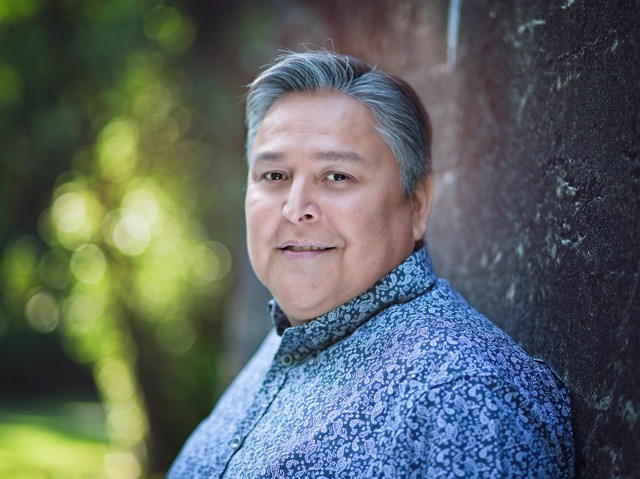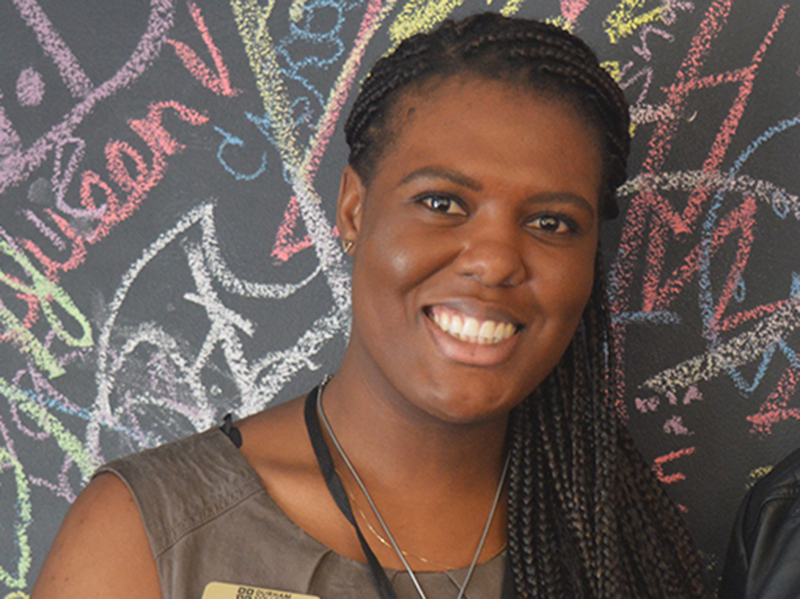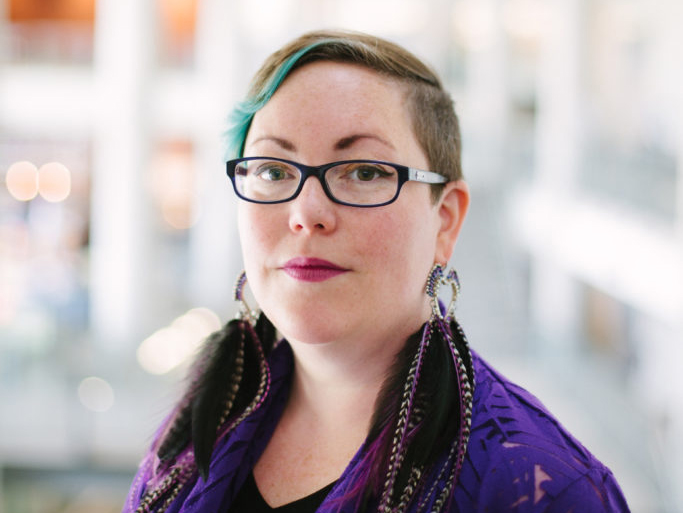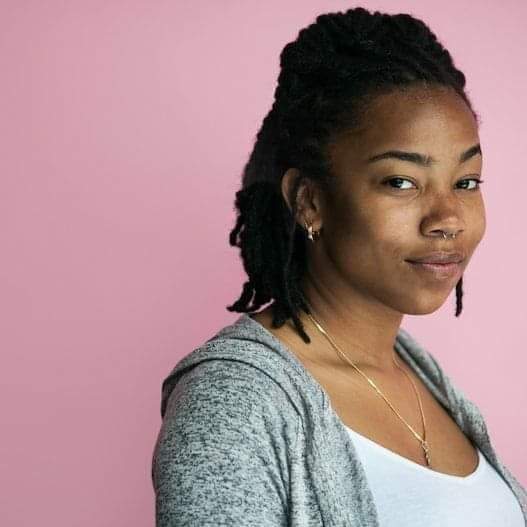Who Is a Settler, According to Indigenous and Black Scholars
Credit to Author: Ashleigh-Rae Thomas| Date: Fri, 15 Feb 2019 15:42:50 +0000
There are two types of people who live in Canada. Indigenous people, who have historically been here for thousands of years, and everyone else. The same could be said of all of North America, where there is a combined total of approximately five million Indigenous people.
This number doesn’t include the Caribbean, where I’m from. Jamaica was once populated with the Taino, until a certain someone brought over smallpox, guns, and Christianity. Later, my ancestors were brought over in shackles.
And much later, but not that much later, my immediate family settled in Canada. Though we weren’t part of the generation that came to Canada right after the immigration laws allowed West Indians entry in the 1960s and 70s, we are still some of the thousands who gave up the Caribbean for the Great White North.
But, were we settlers?
As far as I knew, settling came with a choice. And a history. Both of which were violently taken from my ancestors when they were forced across the Atlantic. That meant there were more than two types of people. Indigenous, settlers, and…where do descendants of slaves fall?
I can’t speak for all Black people, as we all have complex histories and relationships to our various lands and pathways here. But being classified as a settler, along with those who would have had me enslaved, didn’t sit well with me. So, I turned to four very different people to give me their views on who was and was not a settler.

Bob Joseph, author of 21 Things You May Not Know about the Indian Act
VICE: How do you define settlers?
Bob Joseph: When I think about settlers, there are those who came over here because their colonial governments back home said, “Hey, there’s all this free land over here if you wanna make a move, it’s a land of opportunity, you can take it up for free or buy it.” That certainly is a Canadian experience. Different jurisdictions, like Latin America did it differently. In those cases, those are definitely settlers, they made a choice to find their way here to take up land. I think that’s where the expression comes from, coming to settle upon land. The distinction and the context you described which was descendants of slaves…. there wasn’t really much of a choice for you to come here. You were brought here against your will. And certainly, as just one of over 500 different nations of Indigenous people, I can only give you a finite perspective. But you certainly wouldn’t be settlers in the strict sense of the settler term which hinges on your lack of decision versus people who made the decision to settle Canada and the states and other places like that.
What do you think about the language that we use to describe settlers/settler colonialism? Should we update the language? The people who came in the 1600s were settlers, but what about the people who came from Ukraine for just a better life? Are they considered a settler, or is it just the direct descendants of those who settled on the land?
There’s some good conversation to be had. If we’re doing things in the spirit of reconciliation, a big part of that process is to look back and talk about it. More importantly, reconciliation, once we looked back, is how do we live together in the future in a very reconciled way without having to worry about pejorative language that can trigger tense conversation. We’re making strides. Certainly all the work we’re doing on ‘Indigenous people,’ which is a more inclusive term of the more than 350 million Indigenous people around the globe. If we’re looking backwards and it does make sense to use that term, settler, it’s a quick look back, but in the spirit of reconciliation it would be great to come up with expressions that don’t make people feel uncomfortable.
Do you think that Canada is doing a good job at…balancing?
I think it’s relative and people will have to sort through that themselves. We have come a long way as a country. We aren’t trying to forcefully assimilate people anymore by residential schools and banning cultural activities, forbidding events, like all the things you’re reading about in 21 Things You May Not Know About the Indian Act. We’ve since abandoned forced assimilation and we’re going the other way. We’re moving towards recognition and respect.
What are some of the things people can do to acknowledge or work on their settler privilege?
The first and probably most important thing is to go and take a look at the Truth and Reconciliation commission’s calls to actions. And there’s a call for just about everybody, for healthcare providers, academia, for the corporate sector, for all levels of government. Think about a call to action that’s closest to you, and go out and start to learn for yourself. Like you have with reading my book, and having conversations on Facebook.
What can Black people do specifically to stand in further solidarity between First Nations people and ourselves?
Learning about that history and that culture. Some of which is… certainly in the United States, there was a lot of intermarriage between Black people and Indigenous people. There’s definitely a connection and a relationship that continues to this day. I think just looking at the calls to action and taking up reconciliation.

Ashley Marshall, Communications professor at Durham College
VICE: How do you define settlers?
Ashley Marshall: In a Canadian context in 2019? Or since the dawn of settling?
Canadian context.
I would have to define it in sort of two ways. And I don’t know that I can confine my definition to 2019. The first definition that I would have is people who were brought here or came here. So, ‘were brought here’ in the African diaspora and other diaspora, and ‘came here’ meaning Europeans. So people who invaded Native land either wilfully, or in chains and against their will. I think the term settler means or comes from the idea that we are setting up shop, we are settling in here. We are not Indigenous to the land. I think it’s a confession of ‘we are foreigners.’ But I think that after hundreds of years since that colonial invasion and expansion, the term settler also has to come with the connotation of being comfortable. Like, ‘I’m settled in; this is now somehow my land. This is now somehow my government and my infrastructure, and mine to build walls and build prisons and create laws and to govern how I want.’
So it’s more black and white for you?
No. I think the history of the term is black and white. That ‘I am Native and you are foreign.’ ‘I am Indigenous and you are a settler.’ But I think in the last few hundred years, the term has taken on a different layer where it also now means comfort. Of ‘I’ve now settled in, and I can erase the fact that I was foreign or different. And now I’ve taken it upon myself to build prisons and build walls and construct laws and taxes and forms of governance as if I am native. Because I’m settled, I’m comfortable, I’ve been here long enough that I somehow forgot that I’m still foreign.’
What do you think about the language that we use to define settlers/settler colonialism?
When you say ‘we,’ who are you referring to?
Activists, scholars, us here in the 21st century.
I think it is ahistoricised (sic). Like I said, I think what settler meant during confederacy and the negotiation of Canada as a nation doesn’t mean the same thing that it means today. I think a lot of Canadians think that they belong to Canada, or that Canada belongs to them. And not that we’re guests here and should honor the land and the people that we’ve displaced. And I think that the language that we use should be demystified. Because the language that I prefer is ‘stolen people on stolen land.’ I’m not a settler. I’m actually a member of a diaspora that is here against their will. I’m unwillingly complicit in the occupation of Canada. I’m unwillingly complicit in Indigenous people being displaced, and their land being stolen. I’m an unwilling pawn in a system designed to de-resource (sic) Indigenous people, but I too was treated as a resource and also lacked agency.
What kind of privileges do settlers benefit from?
I don’t want to blame settlers. I don’t blame Black settlers, like people who were brought here against their will on slave ships and other technologies of ownership. I do think that we are not doing enough, for various reasons, to not be as complicit in the occupation of Canada and Canadian lands, which are actually Indigenous. As much as we have nowhere else to go, I think we need to do more to form allies with the Indigenous community because we have a mutual enemy, which is colonialism.
But I think the privileges for non-Black settlers…You can read about residential schools but you can also read about why it was justified. It’s not written down that we are racist. It’s that, ‘We’re trying to make Canada great or make Canada great again.’ It would be easy for someone to be influenced by that and to think ‘Well, it made sense at the time so you can’t blame them, they were trying. Democracy is a project, they were doing the best they could with the tools that they had and it’s so much better now. We’ve advanced, we’ve come so far.’ That ignorance I think is a privilege—to not have to change anything, not have to resist, not have to organize, or educate or mobilize or be informed or make any changes. The fact that you can just be satisfied and say ‘well it’s getting better, what more do you want?’ That’s a privilege.
Can descendants of slaves be considered settlers?
No.
Why not?
I think settling comes with an agency and with a choice. It comes with a direction of where you want to settle. That choice is also deliberate and economic. Like, ’We have guns and they have bows and arrows and we’re gonna go to Canada. They have wildlife and fur—start the fur trade. They have lumber and they have fresh water.’ Those are all economically strategic extractions. If you look at colonialism as a business or enterprise, the African diaspora is the barista and not Starbucks. We’re not the company, we’re just the oil that makes the machinery run. We’re not the same.
What are some of the things that people can do to acknowledge or work on their settler privilege?
What are Black people’s responsibilities in this? If truth and reconciliation is going to be achieved, we need to recognize the fact that Black people are a different category because they were brought here against their will. They need to address what they’re doing to the Indigenous, while also addressing what they did to Black people. It’s not black and white.

Chelsea Vowel, author of Indigenous Writes
VICE: How do you define settlers?
Chelsea Vowel: Originally I used a binary wherein settlers were all non-Indigenous peoples. However, that approach is reductive, and in some cases, actively harmful in my opinion. I specifically refer to settlers as “the non-Indigenous peoples living in Canada who form the European-descended sociopolitical majority,” aka white people. Now I recognize that other people can come here and “settle” on these lands, and be folded into the settler-colonial project that is Canada, BUT settler colonials, by definition, occupy lands and impose their legal orders on everyone. Immigrants from Somalia, for example, do not do this. It’s not a bright line definition.
What kind of privileges do settlers benefit from?
Settlers benefit from the privilege of having their worldview imposed upon the lands and bodies of everyone living in these lands. Their metaphysics, their epistemological and ontological approaches, inform every aspect of their governance and society. This is true even though there may be differences between groups of settlers; the settler colonial project sets aside ethnic or national differences between settlers (flattening Russians and Germans and English together) via whiteness. As the default then, settlers are the “norm”, and everyone else, Indigenous or not, must justify their existence, their worldview, through the lens of that dominating settler worldview. That is to say, all those people who are not part of the full settler experience, in dominance, are constant supplicants up against what is seen as immutable and universal (the settler worldview). Settlers benefit from the privilege of not needing to be named, of not needing to justify their thoughts or presence, and this plays out in countless interactions.
Can descendants of slaves be considered settlers?
The descendants of enslaved Africans absolutely cannot be considered settlers. Enslaved peoples could not consent to being brought here, and their presence cannot confer upon their descendants acceptance into the settler colonial system, especially since, being inherently white supremacist, settler colonialism is virulently anti-Black. Enslaved peoples were violently dehumanized and forced to serve settler colonialism, and all remaining ancestral worldviews and cultural innovations among their descendants exist IN SPITE of ongoing attempts to destroy Blackness. No amount of accumulation of wealth or social status changes this, because those things are acquired only through the settler colonial project.
It’s important to also think about other Black presence on these lands. A Black person from Trinidad who now lives in Toronto is not, in my opinion, an “immigrant” per se, but rather an internal migrant. The descendants of enslaved Africans did not originate in the Americas, but the Americas are their home. I do not believe that is something that can be turned back or changed, it simply is, and we need to figure out what that means. However, Black immigration from other contexts also clearly exists, for example in Edmonton we have a large Somali population. While they are folded into “Blackness” under settler colonial white supremacy, and while ongoing colonialism and imperialism is a great factor in their presence here, their position is not the same as the descendants of enslaved Africans. They are also not settlers, but their history, context, and presence here is different.
What are some of the similarities between our histories and yours?
Enslaved Africans were Indigenous peoples, as we are Indigenous peoples. The history between us is complex, obscured, in some cases lost. From Indigenous nations who engaged in chattel slavery, to those nations who did not, kinship ties were formed under many different contexts. Both groups experienced metaphysical rupture that altered our connection to land and spirit realms, and we dealt with those ruptures in a multitude of ways, in some cases with similar or aligned resistance, in other cases, by harming one another. Indigenous peoples here were also included in chattel slavery during periods. Both of us are a post-apocalyptic people. Both of us experience the violence of white supremacy, but how we experience this differs in many ways. Trying to understand these similarities and differences requires understanding what Andrea Smith described as the three pillars of white supremacy: slavery/capitalism, genocide colonialism, and orientalism/war.
What can Black people do to stand in further solidarity between First Nations people and ourselves?
Solidarity between First Nations, Métis, and Inuit (FNMI) and Black people, is something that must be co-constituted. We all have to better understand those three pillars, and how we harm one another with anti-Blackness, Indigenous erasure/displacement, and so on. We absolutely must find a way to hold two truths at the same time: these lands belong (outside of capitalism, in a kinship sense) to Indigenous peoples AND the Americas are the home of the descendants of enslaved Africans. What that means is again something that must be co-constituted, and requires us building deep relationships with one another to fight white supremacy and settler colonialism. It is important for Black people to show up for Indigenous folks, just as it is important for Indigenous folks to show up for Black folks; and what we each need comes from us. So we follow one another’s lead and then we make sure to figure out how the work we do can align in ways that lessens and stops the harm we do to one another.

Jade Brooks, author of The Teen Sex Trade: My Story
VICE: What’s your background?
Jade Brooks: I’m Nova Scotian. This is kind of a loaded question because everyone is always like, ‘But where are you really from?’ but my family has been in Nova Scotia for almost 10 generations. I identify just as Scotian.
What are some of the similarities between Nova Scotian Blackness and Indigenousness?
I can’t think of any because, even though it shouldn’t be like this, it’s very divided. There are reservations in Nova Scotia, and the Black people are confined to more specific areas. We don’t interact that much. Not in this generation at least.
In the conversations surrounding Blackness in Canada, how are Nova Scotians represented?
I don’t think we are represented unless there’s a Scotian at the table to have that conversation, but I think often times we’re overlooked because it’s such a small place. People don’t understand that there’s black people that are indigenous to there.
How do you define settlers?
Basically European people; anyone outside of Indigenous or Black Canadians. In terms of being in Canada, the term colonizer, colonization, comes to mind…I think settler is a nice way to say ‘colonization’ because they didn’t settle here in a nonviolent way.
What do you think about the language that we use to define settlers/settler colonialism? Right now the word settler sounds like ‘Once you’ve come to Canada you’re a settler and that’s it.’
As Black people? I don’t think that you should be called a settler if you’ve come here to make your life here. Say if you’re a first generation Canadian and your parents brought you here or gave birth to you here—this is your home now. I also think that it’s important to give thanks to the people who originate in this country and to not exclude them when you’re doing different types of work and to respect the land as much as you can. If this is where you live, if this is where you are, this is your home too.
So who is a settler and who isn’t?
Again, that settler word is tricky. I wouldn’t be a settler because I was born and raised here, all my family is from here, my parents are from here. I guess I wouldn’t wanna use that term towards Black people because we’re really Indigenous to everywhere in the world.
What kind of privileges do settlers benefit from?
Everything. They have more resources. They’re more readily accessible to them.
Can descendants of slaves be considered settlers? Whether they were born here, or they’re like my parents who were born in Jamaica then came here?
No, I can’t even say that because Nova Scotians have Jamaican ancestry. So you guys were already here. Your ancestors were already here.
Why do you think it’s important to have the voice of a Nova Scotian on something like this?
We’re often overlooked because people don’t know the history of Nova Scotians. They have a reputation that’s not very healthy, so it’s also important to show up and let people know that we’re thriving there as well.
What is the relationship between Nova Scotians and the land?
A lot of people own property on the land. Historically speaking, Black people were left to die on land in Nova Scotia because they gave them land that wasn’t very fertile. It was very hard to grow crops. Also, Nova Scotians in Africville having their land taken from them. There’s definitely trauma with that relationship to the land, but we’re a surviving people.
Follow Ashleigh-Rae on Twitter.
Sign up for the VICE Canada Newsletter to get the best of VICE Canada delivered to your inbox.